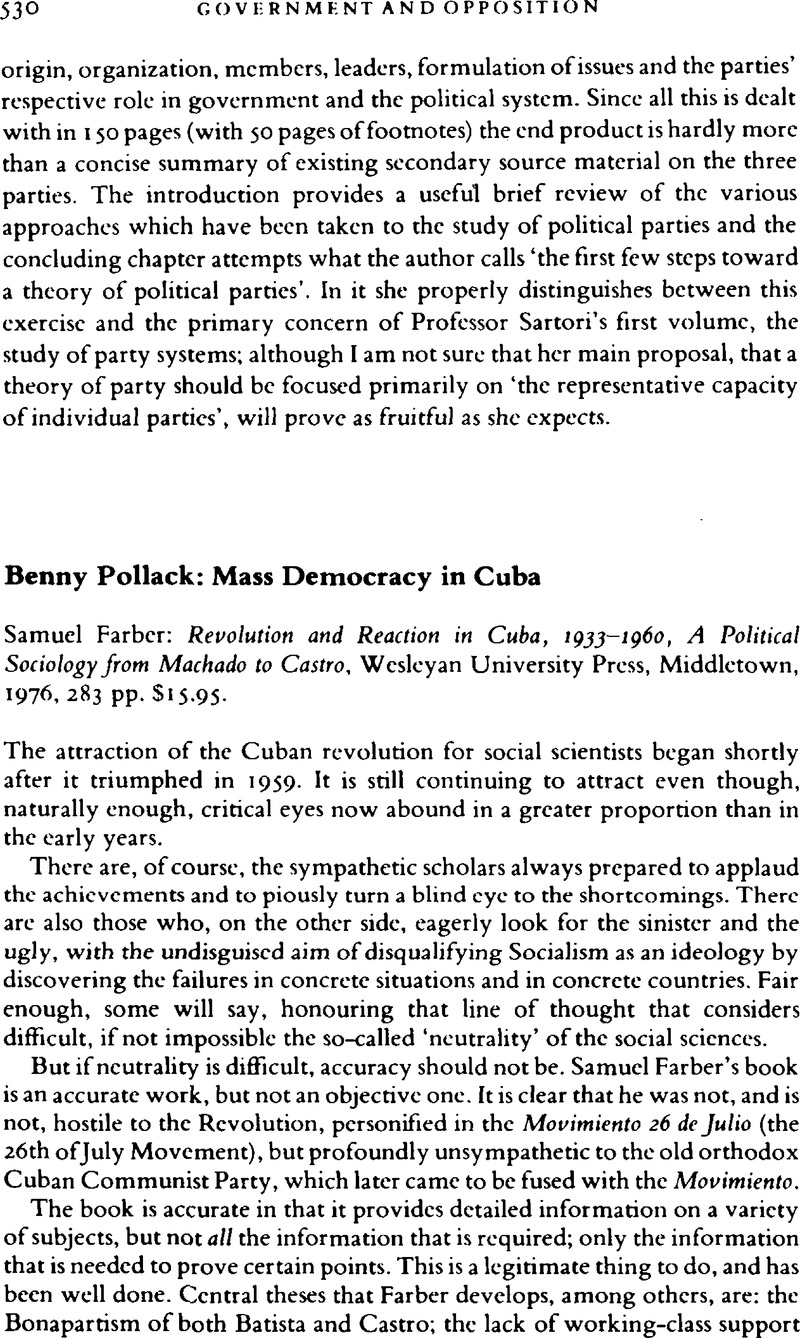No CrossRef data available.
Article contents
Mass Democracy in Cuba - Samuel Farber: Revolution and Reaction in Cuba, 1933–1960, A Political Sociology from Machado to Castro, Wesleyan University Press, Middletown, 1976. 283 pp. $15.95.
Published online by Cambridge University Press: 28 March 2014
Abstract

- Type
- Reviews
- Information
- Copyright
- Copyright © Government and Opposition Ltd 1977
References
1 Zeitlin, Maurice, Revolutionary Politics and the Cuban Working Class, Harper, New York, 1970 Google Scholar. This author overemphasises the extent of working-class support for the Cuban Communist Party. Idealization of the working-class role is also a theme in Huberman, Leo and Sweezy’s, Paul Cuba: Anatomy of a Revolution, Monthly Review Press, New York, 1960 Google Scholar, but this view is to a certain extent modified in Socialism in Cuba, Monthly Review Press, New York and London, 1969. More critical approaches are provided by Draper, Theodore in Castroism: Theory and Practice, Praeger, New York, 1965 Google Scholar and Castro’s Revolution: Myths and Realities, Praeger, New York, 1962.
2 Speech delivered by Fidel Castro to the leaders of the (Central Unica de Trabajadores (CUT, the Chilean TUC), in Santiago, Chile, on 23 November 1971, and reproduced by Granma, official Cuban Communist Party daily on 5 December 1971, p. 14. Also quoted by Farber, Samuel, Revolution and Reaction in Cuba, 1933-1960, Wesleyan University Press, Middletown, 1976, p. 144 Google Scholar.
3 Fagen, Richard R., The Transformation of Political Culture in Cuba, Stanford University Press, Stanford, 1972 Google Scholar.
4 Maurice Zcitlin, op. cit.; Harnecker, Marta, Cuba, Dictadura o Democracia?, Siglo Veintiuno editores, Mexico, 1975 Google Scholar; Antonio Herrera, unpublished Ph.D. report, Liverpool University, 1977. These observers have first hand knowledge of the Cuban phenomenon. They are both of the opinion that, perhaps for the first time in the history of socialist construction, a conscious effort is being made to create new forms of social and political participation which have very little in common with the rather closed, isolated bureaucratized structures normally associated with some Eastern European countries.
5 For details, see Marta Harnecker, op. cit. This author is a young Chilean scholar who has been living in Cuba since 1973. She has had opportunity to test empirically the extent of internalization of a new political culture by Cuban workers. Her work looks promising.
6 Samuel Farber, op. cit., p. 237.




